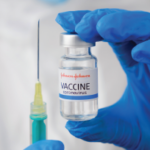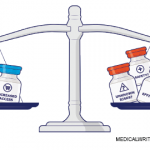(Reuters)—Drugmaker Pfizer Inc on Wednesday filed a lawsuit against Johnson and Johnson, saying its rival’s contracts with health insurers for blockbuster rheumatoid arthritis drug, Remicade, were anticompetitive and blocked sales of Pfizer’s new biosimilar.
Pfizer said in the suit that Johnson and Johnson is offering discounts on its Remicade treatment in exchange for essentially excluding Pfizer’s drug from insurance coverage, keeping it out of the hands of patients.
J and J said in an e-mailed statement that the lawsuit was without merit and that the company is competing on value and price.
“To date Pfizer has failed to demonstrate sufficient value to patients, providers, payers and employers,” said Scott White, President of Janssen Biotech Inc, a unit of Johnson and Johnson.
J and J signed exclusionary contracts with health insurers, hospitals and doctor groups after U.S. regulators approved it as a reasonable substitute for Remicade in 2016, Pfizer said.
The contracts with insurers – including UnitedHealth Group , Anthem Inc, Aetna Inc and Cigna Corp – covered about 70% of the commercially insured patients in the United States, the lawsuit said.
Both Aetna and Anthem declined to comment. Other U.S. insurers contacted for this story did not have an immediate comment.
Remicade is an infused treatment for chronic autoimmune disorders and costs about $4,000 per dose, or $26,000 a year, Pfizer said in the suit. Its Inflectra rival is priced 19% lower than that list price.
But Pfizer said it has not been able to reach customers because of Johnson and Johnson’s anticompetitive actions. The suit comes at a time when insurers, consumers and the U.S. government have pushed for lower drug prices, saying double-digit annual price increases are unsustainable.
Biosimilars are intended to be lower cost alternatives to expensive biotech medicines. But because they are made from living cells and it is not possible to make an exact copy of the branded medicine, they are not automatically substituted for the existing branded drug the way a generic drug would be.
Pfizer said in the lawsuit that J and J’s contracts with many insurers exclusively pay for Remicade and only pay for Inflectra in limited cases where patients “fail first” on Remicade.
In return, Pfizer said, J and J pays after-market rebates on both new and existing customers’ Remicade purchases. To make up for the J and J rebates and discounts on this large base of old and new customers, Pfizer said it would need to price Inflectra below its own average variable cost.


